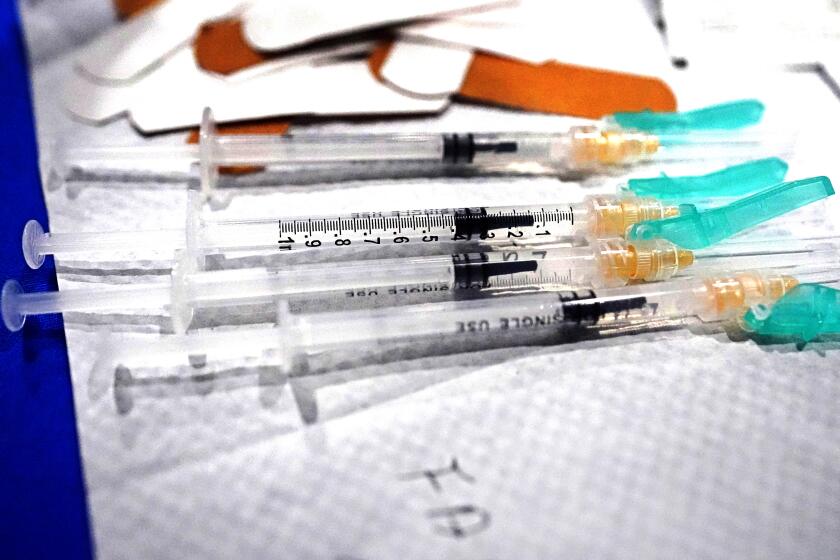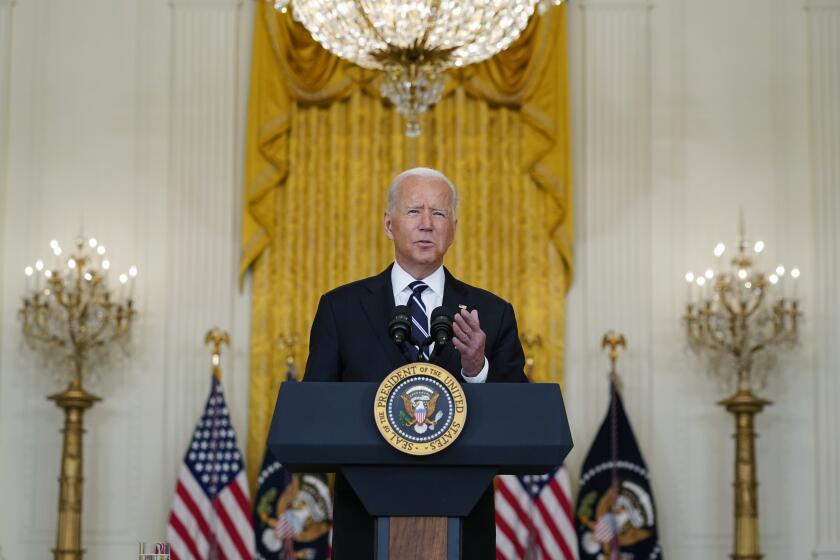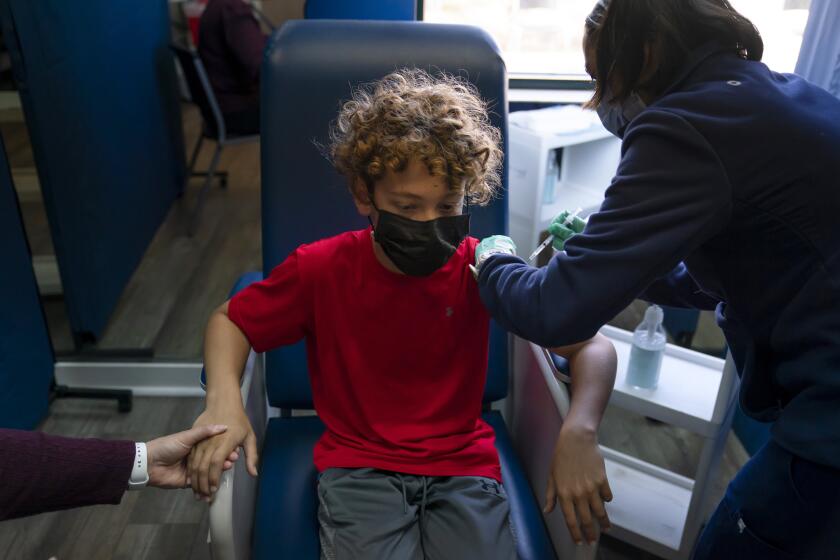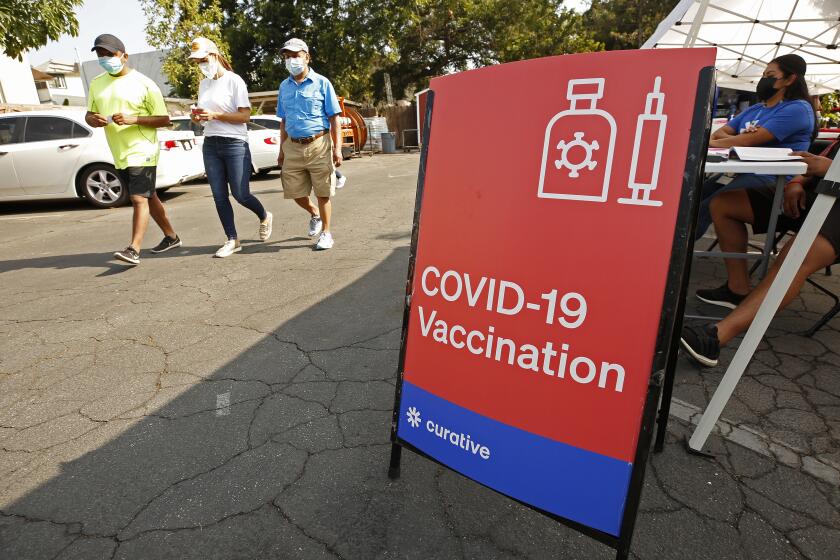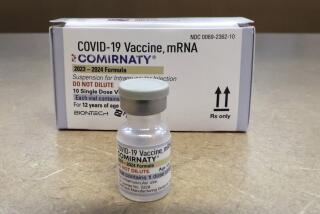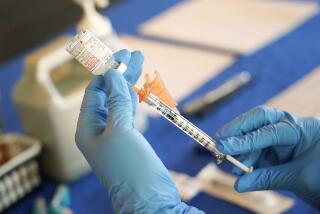How Fauci and the NIH got ahead of the FDA and CDC in backing COVID booster shots
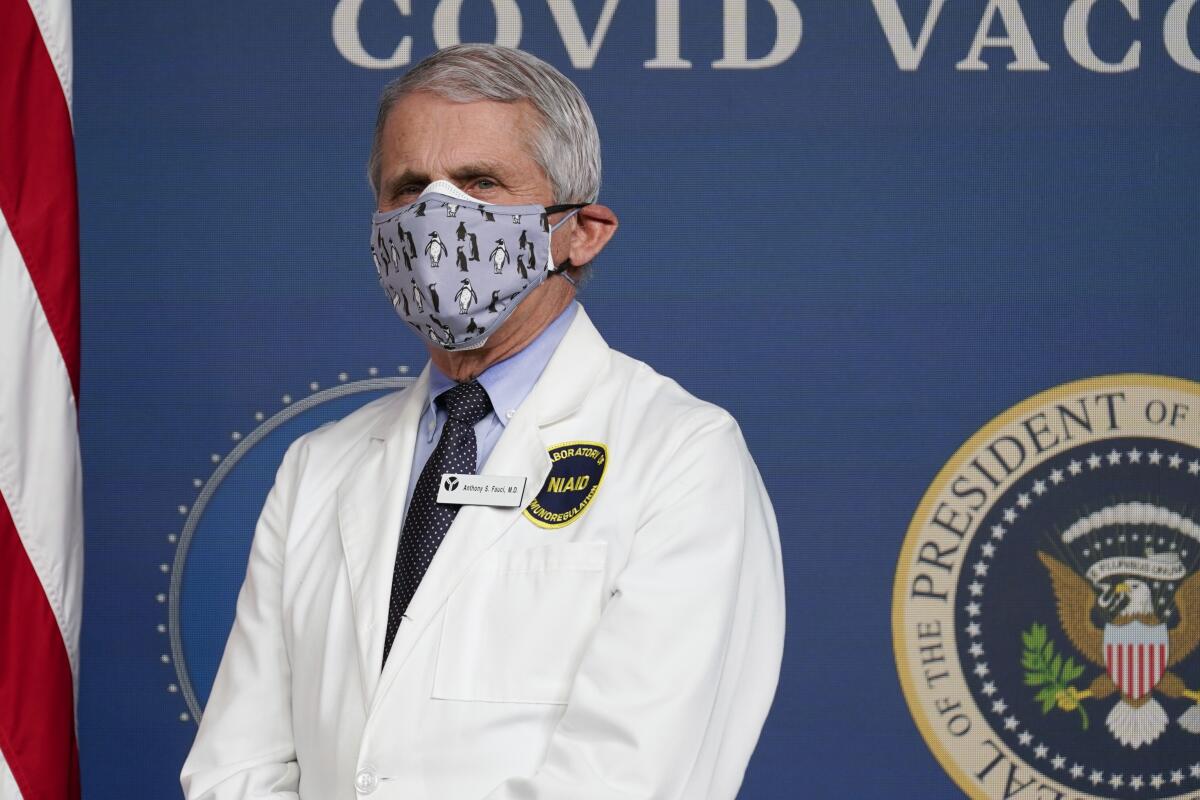
In January, long before the first jabs of COVID-19 vaccine were available to most Americans, scientists working under Dr. Anthony Fauci at the National Institute of Allergy and Infectious Diseases were already thinking about booster shots.
They organized an international group of epidemiologists, virologists and biostatisticians to track and sequence coronavirus variants. By the end of March, they were conducting experiments with monkeys and reviewing early data from humans showing that booster shots induced a rapid increase in protective antibodies, even against variants of concern.
“There’s very little doubt that the boosters will be beneficial,” Fauci told KHN on Wednesday. But he emphasized that the official process, which includes reviews by scientific advisers for the Food and Drug Administration and the Centers for Disease Control and Prevention, needs to take place first.
“If they say, ‘We don’t think there’s enough data to do a booster,’ then so be it,” Fauci said. “I think that would be a mistake, to be honest with you.”
The support for an extra dose of COVID-19 vaccine can be traced in part to the research operation built by Fauci that for months has been gathering real-time data about coronavirus variants and how they respond to vaccines.
The FDA and CDC were seeing much of the same data, but as regulatory agencies, they were more cautious. The FDA, in particular, won’t rule on a product until the company making it submits extensive data and the agency’s experts examine every detail.
Fauci says he’s not the only backer of boosters in the federal government. Members of the White House COVID-19 response team, including Surgeon General Vivek Murthy, acting FDA Commissioner Dr. Janet Woodcock, as well as COVID-19 vaccine developer Dr. Barney Graham were on board too.
We look at the science behind the need for COVID-19 booster shots.
But caution — or even skepticism — is already evident among members of the FDA’s vaccine advisory board, which meets Friday to review Pfizer and BioNTech’s request for approval of a third shot. The official briefing paper for the meeting raised doubts about the need for the extra dose.
“Overall,” agency officials noted, “data indicate that currently U.S.-licensed or authorized COVID-19 vaccines still afford protection against severe COVID-19 disease and death.”
The briefing paper also raised the possibility that an additional shot might increase the risk of myocarditis, an inflammation of the heart muscle that has been reported following the second dose of the Pfizer and Moderna vaccines, particularly in young men.
Members of the White House COVID-19 response team — including Fauci and Dr. David Kessler, a former FDA commissioner who is the White House’s lead advisor on vaccines — had begun preparing a timeline for boosters months earlier. Kessler told Congress in May that it was unclear whether boosters would be needed but that the U.S. had the money to purchase them and ensure they were free to the public.
President Biden announced last month that Americans could get a booster as soon as Sept. 20, a date Fauci had suggested as both practical and optimal.
Fauci acknowledges that decisions about approval and timing rest with the FDA, and that the CDC would need to sign off as well. But he thinks that should happen as quickly as possible.
“If you’re doing it because you want to prevent people from getting sick, then the sooner you do it, the better,” Fauci said.
As some scientists see it, Biden’s plan to move forward with COVID-19 vaccine booster shots is rash and based on weak evidence.
Diana Zuckerman, president of the nonprofit National Center for Health Research in Washington, D.C., noted that researchers at National Institutes of Health — which includes the National Institute for Allergy and Infectious Diseases — tend to focus on basic research about diseases. The FDA is the agency is charged with the job of regulating and approving products for market.
“It’s no secret that the NIH doesn’t have the experts in analyzing industry data,” she said.
Still, no other infectious disease expert in any branch of the U.S. government has Fauci’s influence. And while he’s not alone in supporting boosters, he and his NIAID colleagues are leading the charge, many scientists say.
NIAID leaders coordinate an international group of 60 to 70 scientific collaborators who work together to track the hundreds of coronavirus-related studies that are released somewhere in the world each day. Several subgroups meet multiple times a week to focus on a specific area of research, such as early detection of viral variants or tests of signs of waning vaccine efficacy.
With the Delta variant surging, pediatricians and others are urging the FDA to move faster on COVID-19 vaccines for young children.
Two NIH scientists in that group, Dr. Robert Seder and Dr. Daniel Douek, had been in close contact with Israeli colleagues and observed data coming from the country’s Ministry of Health.
Israel started vaccinating its population in December, using only the Pfizer-BioNTech vaccine. In July, the country began seeing severe breakthrough cases in elderly people who were vaccinated. Israel’s Ministry of Health announced boosters July 29.
After the third doses were given, hospitalizations of previously vaccinated people dropped dramatically, according to data Israeli scientists shared with NIAID. Emerging evidence suggests boosters make people far less likely to transmit the virus to others, an important added benefit.
Combining that information with studies they had already started — including one on the immune response to the vaccine in animals — they went to Fauci in August to suggest he get an update directly from Israeli researchers.
With that and other data streaming in from around the world — on group email lists, Zoom meetings and news interviews — Fauci became convinced it was time to plan for a booster dose for Americans as well.
“There’s very little doubt that the boosters will be beneficial,” he said. “The Israelis already have that data in spades. They boost, they get an increase by tenfold in the protection against infection and severe disease.”
Dr. Sharon Alroy-Preis, Israel’s head of public health services, said her country’s boosters came at a critical time.
Some U.S. scientists have discussed limiting the boosters mostly to people over 60, she said on a webinar this week. But “if you don’t keep it under control, it’s like a pot on the flame. If you don’t start lowering the flames of the pandemic, you can’t control it.”
Matthew Frieman, a microbiologist at the University of Maryland School of Medicine and member of the research group organized by NIAID scientists, said the data make clear that the time for boosters is approaching.
Biden’s booster announcement “may have gotten ahead of the game, but the trajectory is pointing toward the need for boosters,” he said. “The level of antibody you need to protect against Delta is higher because it replicates faster.”
By now, we all know that the Delta variant is about twice as transmissible as the original coronavirus. What exactly makes it so good at spreading?
On Monday, an international group of scientists published an essay in the medical journal Lancet that questioned the need for widespread booster shots at this time. The lead author was Dr. Philip Krause, deputy chief of the FDA’s vaccine regulation office; his boss, Dr. Marion Gruber, was a co-author.
Krause and Gruber announced their retirements from the FDA on Aug. 30, and Biden’s booster announcement was a factor in their decisions, according to four scientists who know them. (Gruber, who will remain at the agency until later this fall, is listed as a participant in Friday’s meeting.)
The Lancet essay argues that vaccine protection against severe COVID-19 is still strong, and that evidence that booster shots will be safe and effective is lacking.
University of Florida biostatistician Ira Longini, a co-author on the Lancet paper, said it would be “immoral” to administer widespread booster shots when so many people around the world are still waiting for their first dose. He also noted that the longer the virus continues its global spread, the more chances it has to evolve a more virulent or more vaccine-resistant strain.
Unleashing a fast-spreading coronavirus variant on a half-vaccinated population can lead to a vaccine-resistant strain.
Longini was also skeptical of a finding from an Israeli study published Wednesday in the New England Journal of Medicine: that people receiving a third dose of the Pfizer-BioNTech vaccine were 11 times more likely to be protected from a coronavirus infection than those who had gotten only two doses.
The study observed people for less than two weeks after their booster vaccinations kicked in — perhaps not enough time to tell whether a third shot really does make a difference, he said.
Fauci emphasized that no single study or piece of data led Biden or the members of the White House COVID-19 response team to conclude that boosting was necessary. It was the accumulation of multiple lines of evidence that persuaded them, including studies suggesting the protection offered by the original vaccines waned over time.
Now the crucial decisions are in the hands of the regulators, awaiting their judgment on how the nation should proceed.
“It isn’t as if one day we’re sitting in the Oval Office saying, ‘You know, Mr. President, I think we need to boost.’ And he says, ‘Tony, go ahead and do it,’” Fauci said. “You can’t do it that way. You’ve got to go through the process.”
Freelance journalist Nathan Guttman contributed to this report.
KHN (Kaiser Health News) is a national newsroom that produces in-depth journalism about health issues. Together with Policy Analysis and Polling, KHN is one of the three major operating programs at KFF (Kaiser Family Foundation). KFF is an endowed nonprofit organization providing information on health issues to the nation.
